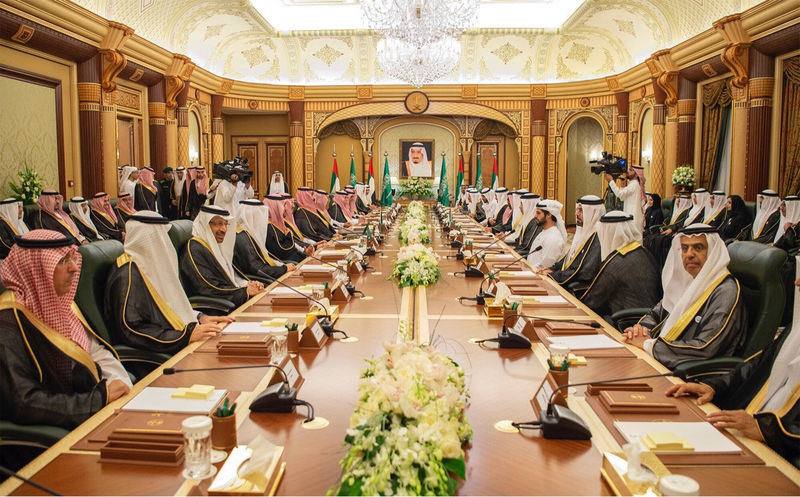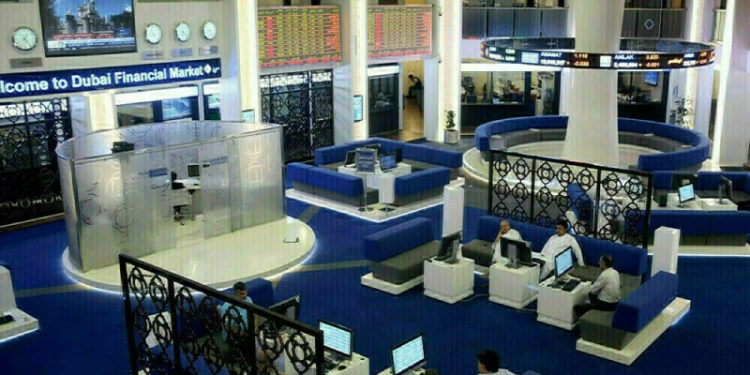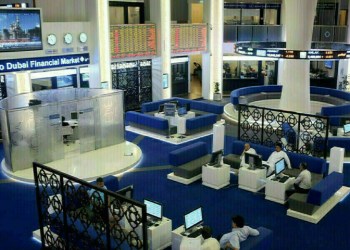 © Reuters. General view of the meeting during Saudi-UAE Summit in Jeddah
© Reuters. General view of the meeting during Saudi-UAE Summit in JeddahBy Andrew Torchia and Marwa Rashad
DUBAI/RIYADH (Reuters) – Saudi Arabia and the United Arab Emirates put jobs and investment at the center of their diplomatic alliance, saying on Thursday they would cooperate in areas ranging from energy and agriculture to tourism and financial services.
The countries are already close political allies, fighting efforts by Iran and the Muslim Brotherhood to gain influence in the region. Last year they launched a boycott of Qatar, which they accused of backing terrorism.
A joint statement by the two governments, after a meeting in Jeddah between the crown princes of Saudi Arabia and Abu Dhabi, listed dozens of steps to integrate the Arab world’s two largest economies more closely.
Many of the plans involve food security; the countries are to establish a joint agricultural investment venture with capital of 5 billion dirhams ($1.4 billion), and cooperate in developing desalination technologies.
Other plans include joint investment in the international oil, gas and petrochemical sectors – though no details were given – as well as a joint fund to invest in small industrial companies, and an effort to make cross-border trade smoother.
For political purposes, Gulf governments often announce vague plans for economic cooperation that never materialize. But analysts said the large scope of the Saudi-UAE plans, which were prepared over 12 months, suggested a serious effort to benefit from closer business ties.
“This shows a strong emphasis on using the partnership to increase economic growth and investment,” said Monica Malik, chief economist at Abu Dhabi Commercial Bank, one of the emirate’s biggest financial institutions.
Traditionally, trade and investment between the Gulf energy exporters have been minor, because the countries have focused on exporting oil and gas outside the region. Less than 2 percent of the UAE’s imports come from Saudi Arabia.
Now, however, Saudi Arabia and the UAE are scrambling to develop non-oil industries and attract foreign investment in the wake of the 2014 oil price plunge. Cooperation between their firms, many of which are state-controlled, could aid this drive.
WEAPONS, VEHICLES, SHIPPING
John Sfakianakis, director of economic research at the Jeddah-based Gulf Research Center, said the two countries could cut costs through joint ventures in manufacturing, technology and other areas.
Thursday’s announcement also called for cooperation in educational and military affairs, such as joint manufacturing of ammunition, light weapons and vehicles.
As Saudi Arabia and the UAE develop non-oil industries, competition between them may increase. For example, Riyadh is creating a shipbuilding industry which could take business from Dubai’s Jebel Ali maritime yard, and a new Saudi tourism industry may compete with the hospitality sector in Dubai.
Thursday’s agreement could help the governments manage such conflicts. The deal will create an office to coordinate investment opportunities and “protects the interests of both countries”, the official statement said.
In 2009, the UAE pulled out of a scheme to create a single currency with Saudi Arabia and other Gulf states, effectively killing the plan – partly, analysts said at the time, because of Abu Dhabi’s concern about Saudi dominance of decision-making in the region.
Thursday’s statement made no mention of a single currency, and local bankers said it was unlikely that integrating the Saudi and UAE economies would include serious steps toward monetary union for the foreseeable future.
“Certainly with the economic difficulties and the reform challenges that they’re facing, now is not a good time to explore this,” said one Gulf banker. “Perhaps in the very long run.”
Source: Investing.com




























